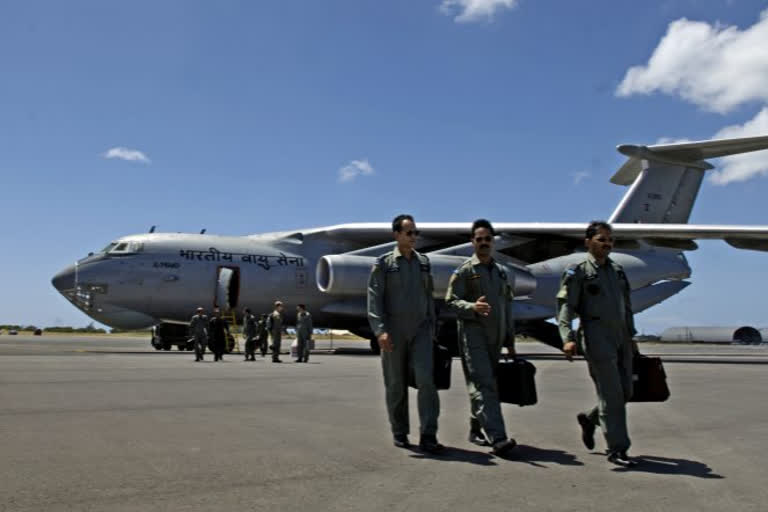New Delhi: About 50 Indian scientists from the premier Defence Research and Development Organisation (DRDO) involved in scientific work were flown out from the central Asian republic of Kyrgyzstan earlier this month by an IAF C-17 Globemaster in an emergency operation.
“The DRDO scientists were part of a trial and had been in Kyrgyzstan for a few months. The decision to fly them back to India was taken after many of them got afflicted with the COVID 19 coronavirus and requested to be flown back. That was when the IAF was pressed into service,” an official told ETV Bharat on condition of not being named.
The emergency airlift brings into focus the close defence ties India shares with Kyrgyzstan which, like India, also shares the international border with China.
Traditionally, India's interest in the Central Asian republics including Kyrgyzstan was shaped by a need for securing energy security and to prevent terrorism and controlling drug trafficking activity that to a large extent emanated from Afghanistan.
But with China's deep inroads into the region with massive projects like the Belt and Road Initiative (BRI), there is a renewed Indian effort at a stronger and closer relationship with countries in the Central Asian region.
One of the key areas of defence cooperation is the high-altitude biomedical research, a result of which has been the 2011-established Kyrgyz-India Mountain Biomedical Research Centre (KIMBMRC) at Bishkek, the Kyrgyz capital.
Among other specific fields, KIMBMRC studies high altitude acclimatisation procedures finds strategies for efficient acclimatisation and conducts experiments to improve physical endurance in high altitude areas.
With India’s long experience in deployment of troops at super-high altitudes of 22,000 feet at Siachen since 1984 and the ongoing mobilization of troops in the high altitude region of eastern Ladakh after border tension with China, there is a lot to share with Kyrgyzstan which has several high altitude areas.
KIMBMRC is a collaborative effort between DRDO and the National Centre for Cardiology and Internal Medicine (NCCIM) of Kyrgyzstan.
Last year, during an official visit Prime Minister Narendra Modi inked several important agreements with Kyrgyzstan President Sooronbay Jeenbekov which included cooperation between the High Altitude Warfare School at Gulmarg, and the Joint Mountain training Centre of the Kyrgyz military on one hand and the National Defence Academy of India and the Kyrgyz Military Institute on the other.
Significantly, both countries are members of the Shanghai Cooperation Organisation (SCO).
India is today (Monday) hosting the SCO heads of government summit, the first time it is hosting the event ever since it became a member in 2017.
ALSO READ: India air chief flies on indigenous combat chopper



